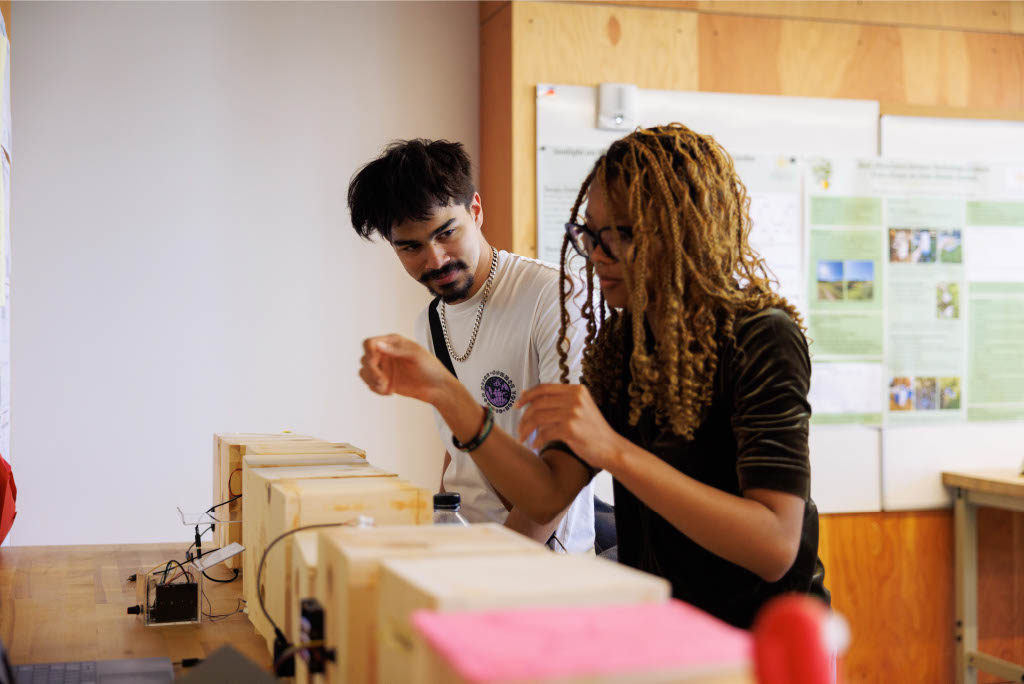Program Overview

Our Vision
Through its innovative teaching and research, engineering at USF will provide a comprehensive, project-based engineering education within the Jesuit liberal arts tradition that emphasizes ethical responsibility, social justice, and community engagement. Committed to diversity as an asset, it will produce graduates with a local and global perspective who are equipped to find ethical and innovative solutions to the challenges facing society in the 21st century.
Our Mission
USF engineering’s mission is to educate the whole person in the Ignatian tradition of transforming the world and ourselves. Through an innovative, inclusive, and applied education focusing on design, creation, and resourcefulness, it provides students the skills and perspective they need to succeed as professionals and the self-confidence, sensitivity, empathy, and cultural competency necessary to be ethical and responsible engineers empowered to effect meaningful change. It is distinguished by its high-quality community-engaged scholarship, teaching, and research, and its interdisciplinary programming relevant to real projects locally, regionally, and internationally.
Engineering Major
Students will:
- Engage in an engineering process applying creative problem solving techniques and technical skills based on previous experiences, curiosity and a commitment to continuous learning
- Seek opportunities to practice engineering which values diverse communities, and integrates multiple perspectives through collaborative teamwork
- Develop a professional identity fortified by integrity, interdisciplinary engineering knowledge, passion, self awareness, mentorship, leading by example and modeling of values
- Integrate values of social justice and environmental sustainability into engineered solutions and consider impacts on individuals and communities
Students will achieve an ability to:
- Identify, formulate, and solve complex engineering problems by applying principles of engineering, science, and mathematics
- Apply engineering design to produce solutions that meet specified needs with consideration of public health, safety, and welfare, as well as global, cultural, social, environmental, and economic factors
- Communicate effectively with a range of audiences
- Recognize ethical and professional responsibilities in engineering situations and make informed judgments, which must consider the impact of engineering solutions in global, economic, environmental, and societal contexts
- Function effectively on a team whose members together provide leadership, create a collaborative and inclusive environment, establish goals, plan tasks, and meet objectives
- Develop and conduct appropriate experimentation, analyze and interpret data, and use engineering judgment to draw conclusions
- Acquire and apply new knowledge as needed, using appropriate learning strategies
Students declare one of the following concentrations by their second year:
Learn About Our Students
Two members of our first graduating cohort, Class of 2024, were interviewed about their plans after graduating.
Read about Kevin Sarmiento '24 and Nolan Ward '24 and their new jobs!